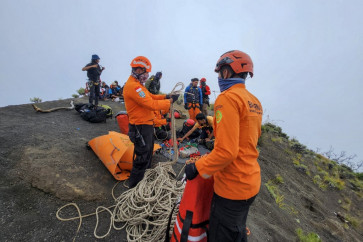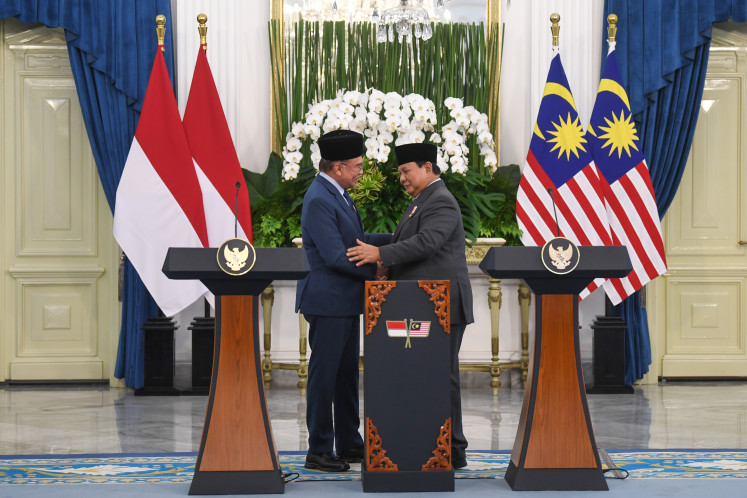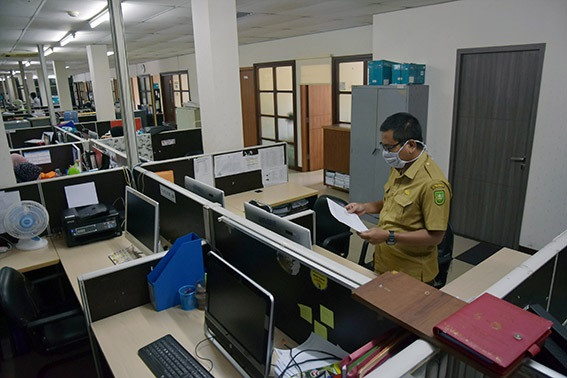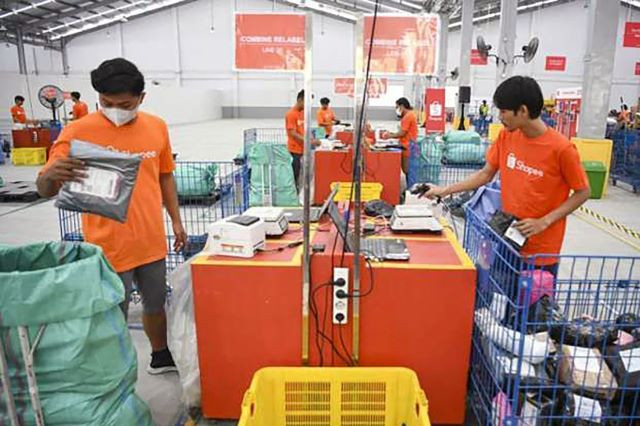Popular Reads
Top Results
Can't find what you're looking for?
View all search resultsPopular Reads
Top Results
Can't find what you're looking for?
View all search resultsBlimbingsari embraces community tourism
Bali Community-Based Tourism Association (Bali CoBTA) is working with local residents to develop Blimbingsari into an attractive tourist destination in an attempt to offer a first-hand experience of a Balinese village
Change text size
Gift Premium Articles
to Anyone

B
ali Community-Based Tourism Association (Bali CoBTA) is working with local residents to develop Blimbingsari into an attractive tourist destination in an attempt to offer a first-hand experience of a Balinese village.
Under the concept of community-based tourism, in which tourism is managed by local residents, the association is assisting local residents to create interesting programs for tourists, said Bali CoBTA assistant chairperson Christine Sutanti.
'We create packages of interesting activities to attract tourists to visit Blimbingsari, in the hope that tourist arrivals increase and benefit local residents,' she said.
Located in Jembrana, the island's western regency, Blimbingsari is prepared to welcome guests, with the availability of 85 homestays.
'We provide suite rooms and deluxe rooms to the standard of a hotel, equipped with facilities like hot water and toilet seats,' said Wayan Murtiasa, one of the local residents.
This year, the village is expecting more guests after welcoming a total of 2,593 tourists, comprising 174 foreigners and 2,419 domestic tourists, last year.
Foreign tourists visiting the village were mostly from Australia, Germany, the US, the Netherlands, Canada, Africa, Korea, China, Japan, Singapore and Malaysia.
Blimbingsari has unique characteristics and a comfortable atmosphere with fresh, pollution-free air. Tourists can also enjoy the wildlife of west Bali at the West Bali National Park by trekking in the forest and observing the starling or jalak putih, the mascot of west Bali.
In addition to trekking, tourists can visit agro-tourism sites with paddy fields and plantations of cocoa, coconut, banana, teak and mahogany, as well as the home industries of brown sugar, dried coconut and fishery products. They can also visit local schools and orphanages to interact with local children.
Those who like outdoor activities can go camping in the village or in the woods, or go jogging, cycling, fishing in the river or the sea and snorkeling in Menjangan Island.
Spiritual retreats and visits to the unique architecture of Pniel Church are also included in the package of activities offered to tourists during their stay.
Blimbingsari is well-known as a village with a Christian majority that is native to Bali.
'Blimbingsari looks like any other Balinese traditional village, as seen from its buildings, language and the traditional clothing worn by the villagers. Although they aren't Hindus, they preserve their Balinese traditions and identity,' Wayan said.
According to the Bali CoBTA website, Blimbingsari was opened for settlement on Nov. 30, 1939, by inhabitants from various villages in central Bali, east Bali, and north Bali. The village grew rapidly in terms of education, culture and economy.
During the Dutch colonial period, a concerted effort was made to preserve, then promote certain Balinese cultural traditions in order to create an attractive image for the purposes of tourism.
Initially, all Catholic and Protestant missionaries were banned from pushing their ideas on the island but by the early 1930s, some inroads were made and a very small Christian community began to emerge.
This 'new' community created tensions with both the local Hindu population and the Dutch and in 1939 the colonialists decided to shift the missionaries to two very remote locations in the mountains of far west Bali.
At the time there was nothing at either location and both were built from scratch.









